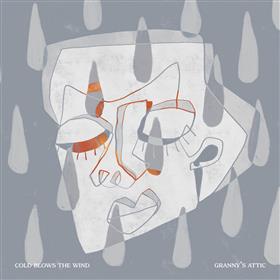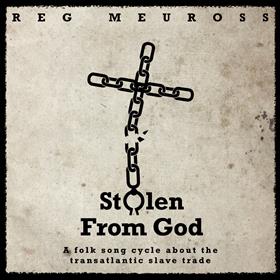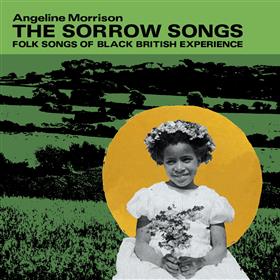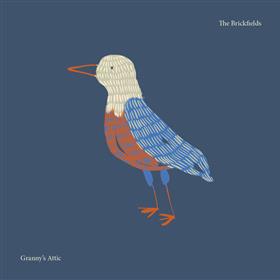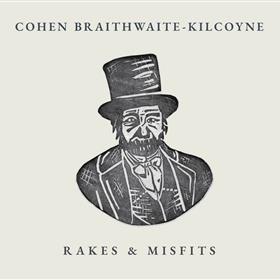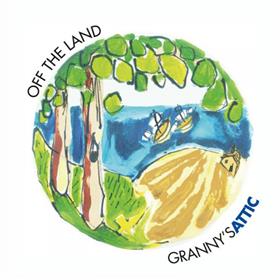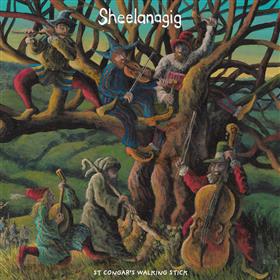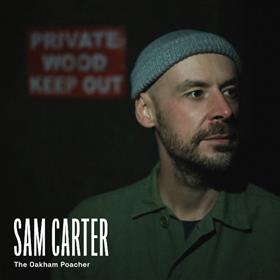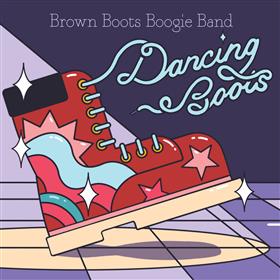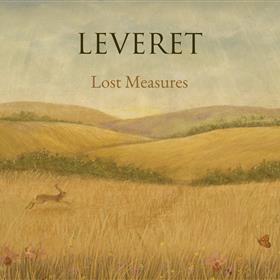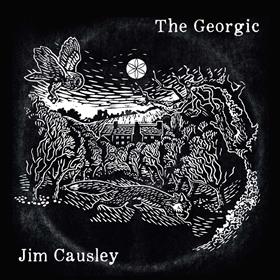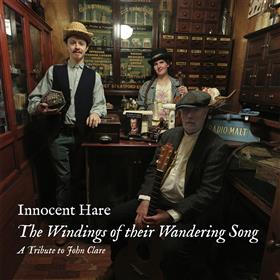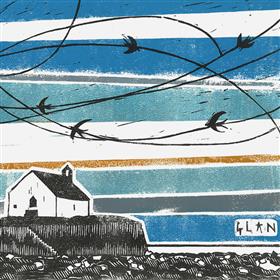Cohen Braithwaite-Kilcoyne - Play Up The Music!
2024 studio album
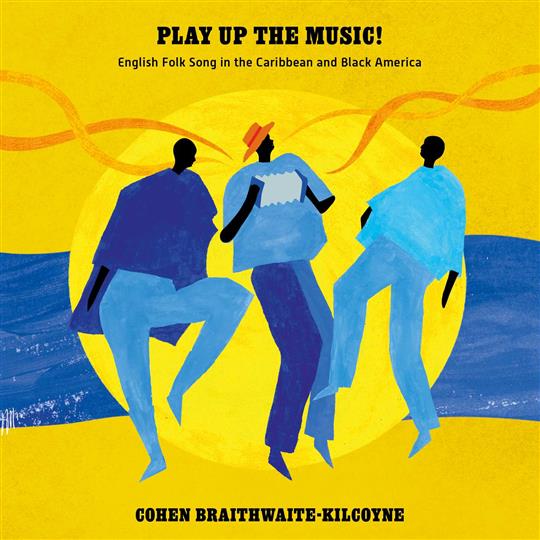
the bright young folk review
The third solo album by Granny’s Attic member Cohen Braithwaite-Kilcoyne features just him on reedy, nasal vocals (sounding much older and more grizzled than his years) and a pair each of melodeon and Anglo concertinas, its subtitle English Folk Songs of the Caribbean and Black America succinctly summing up the material and the connections it draws. The title Play Up The Music stems from a call to his musicians to strike up a tune by Anansi, a cunning spider that’s a staple of Caribbean and Afro-American folklore.
Striking up a tune, the album opens with the melodeon wheezing Tacoma’s Song, written by Walter Jekyll, a Surrey clergyman who renounced his faith and emigrated to Jamaica in 1896, collecting the local folk songs and stories for a subsequent book. One such, Tacoma and the Old Witch Girl, provides the basis with two verses as the former tries to woo the latter. She rejects all he offers save for the keys to his heart, a variant from the English folk song The Keys Of Canterbury, in a dialogue between the characters, here combined with the melody to create a hybrid song.
Keeping the same melodeon, Row, Row, Nanny! / Crow, Nanny, Crow! is a toe-tapping medley of Barbadian melodies drawn from Trevor Marshall, Peggy McGeary, and Grace Thompson’s Folk Songs of Barbados, a combination of two ring-game songs that could easily be mistaken for something from the Morris tradition. Switching to concertina, Sweet William and Lady Margaret will be recognised as the traditional doomed lovers English folk song. Although it was, in fact, collected in Appalachia by Cecil Sharp and Maud Karples in Kentucky from Black American Sinda Walker, albeit having its origins in England from at least 1765 with Sharp later collecting another variant in Somerset.
Equally familiar will be Hangman Slack On The Line, better known as Gallows Pole or its variants The Prickly Bush and Maid Freed From The Gallows, the decidedly jaunty concertina version here coming from Dorothy Scarborough’s 1925 book On the Trail of Negro Folk-Songs, Cohen adding the ’prickle-holly’ chorus found in English versions while the instrumental, also from Scarborough’s book, is the dance melody, Tain’t Gwine Raine No Mo.
The English folk canon has three songs about outwitted highwaymen, one being the particularly obscure Highway Robber. This version, taken from Jim Morse’s Folk Songs of the Caribbean and sung unaccompanied, has the brigand a Robin Hood-like character who strips his female victim naked but she escapes with his horse and, apparently, they wind up wed. Better known is The Outlandish Knight, English and Scottish versions dating back to at least the mid-eighteenth century, which tells how a young woman who elopes with a knight who then tries to murder her for her money, clothes and horses, only for to turn the tables. The version here, with a passage sung unaccompanied, again from Scarborough’s book and collected in South Waco, includes the resourceful parrot who keeps events a secret from her parents.
Courtships with a hidden agenda are, of course, a folk staple and O Sailor Boy has a particularly wily rogue who, begged by his sweetheart to marry her, keeps coming up with excuses about not having the necessary apparel until, having been equipped with a full wardrobe, he tells her he’s already married. This version, returning to melodeon, comes from a recording collected in April 1962 by Alan Lomax in Diego Martin, Trinidad, and is particularly unusual for a traditional number in containing the line “So she’s jumped in the car and she drove away”, meaning it has to be post-1900 when the first automobile appeared in the country.
Another from Lomax, and back on concertina, with its contrasting time signatures The Rich Old Lady, about an adulterous old dear in Tennessee, likely comes from black prison inmate James “Iron Head” Baker, though English variants exist under the title Marrowbones, which she uses to blind her hubbie who turns the tables when she tries to drown him.
An English ballad dating back to at least the seventeenth century in the north of England,
the melancholically played Little Musgrove, from whence comes the better-known title of Matty Groves, appeared in three versions in Martha Beck’s 1924 article The English Ballad in Jamaica, this, sung by ’Maroons from Accompong’, being the third. However, consisting of just two verses, Cohen’s fleshed it out with lines from English variants and the two collected from William Forbes of Dry River near Maggotty in Jamaica who sang it as an Anansi story.
It ends with two more from Folk Songs of Barbados, firstly Miss Bailey is a lively melodeon instrumental version of what was apparently a woman’s banter song that mutated into a children’s ring-game number which interestingly has an almost Cajun feel. Finally comes Cocoa Tea, a hugely popular tune and the Bajan equivalent of a music hall ditty about a man who is seduced away from his fiancée by another woman, according to the doctor, under the love potion influence of cocoa tea.
An album that reinforces how folk songs cross cultures; while Cohen’s instruments of choice, and voice can be something of a Marmite proposition, give it the chance and, like that spider, it will draw you into its web.
Mike DaviesReleased October 4th 2024 on CD on Grimdon Records.Recorded and mixed by Tom A. Wright.
1, Tacoma’s Song
2. Row, Row, Nanny! / Crow, Nanny, Crow!
3. Sweet William and Lady Margaret
4. Hangman Slack on the Line
5. The Highway Robber
6. Outlandish Knight
7. O Sailor Boy
8. The Rich Old Lady
9. Little Musgrave
10. Miss Bailey
11. Cocoa Tea

